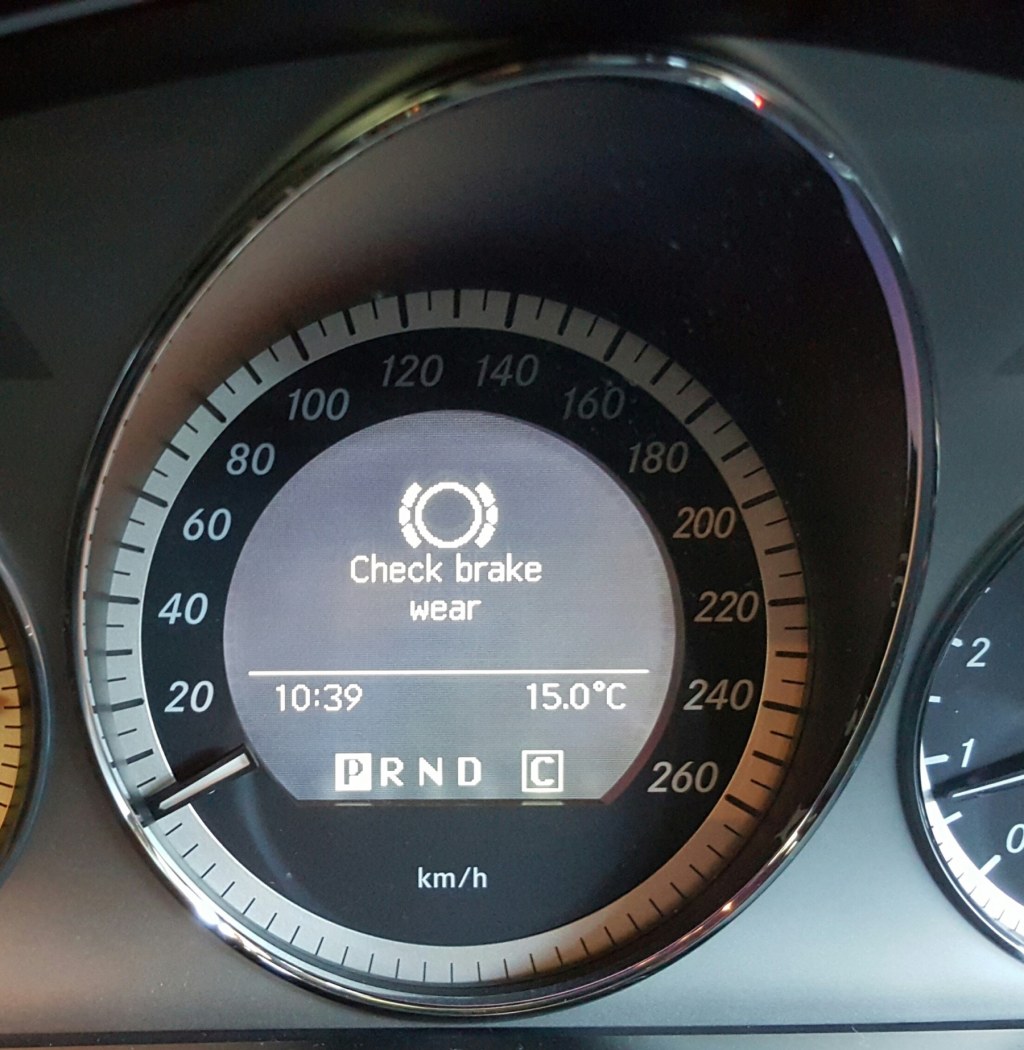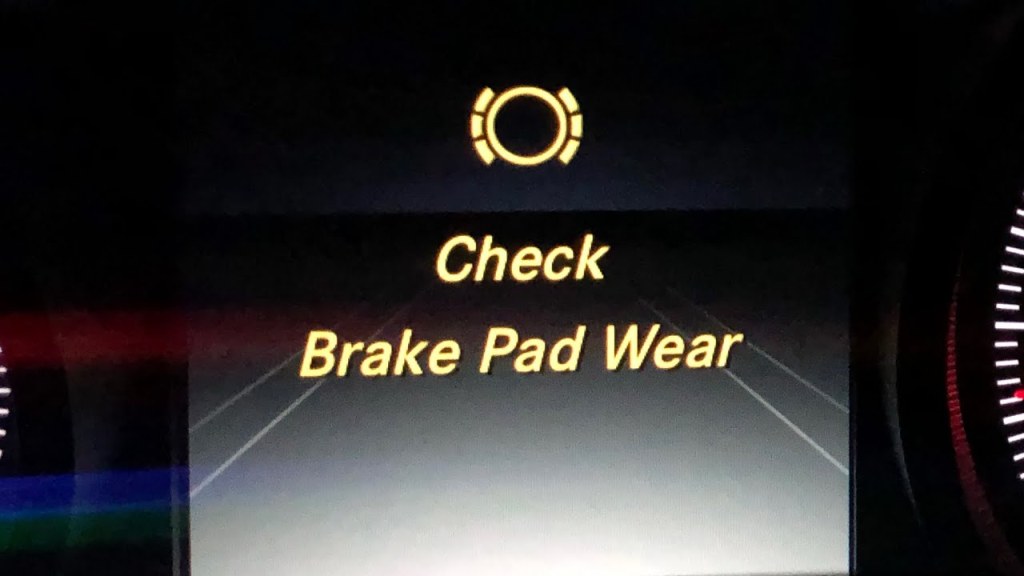Instantly Ensure Mercedes Brake Wear: Check Now And Take Action!
Check Brake Wear on Mercedes: A Comprehensive Guide
Greetings, Fashion Enthusiast! Are you a proud owner of a Mercedes? If so, you know that maintaining the performance and safety of your luxury vehicle is of utmost importance. One crucial aspect to monitor regularly is the condition of your brakes. In this article, we will provide you with a comprehensive guide on how to check brake wear on your Mercedes, ensuring your safety on the road. So let’s dive in and discover everything you need to know!
Introduction
Brakes are an essential component of any vehicle, and Mercedes is known for its advanced braking systems. Regularly inspecting your brakes for wear and tear is crucial to ensure optimal performance and safety. In this introduction, we will discuss the importance of brake maintenance, the signs of brake wear, and the benefits of checking your Mercedes brakes regularly.
3 Picture Gallery: Instantly Ensure Mercedes Brake Wear: Check Now And Take Action!



1. Importance of Brake Maintenance 🛠

Image Source: ytimg.com
Keeping your brakes in top condition is vital for your safety and that of your passengers. Brakes are responsible for stopping your vehicle and preventing accidents. Regular brake maintenance can prevent unexpected brake failure and maintain the overall performance of your Mercedes.
2. Signs of Brake Wear 👀
It’s crucial to be aware of the signs that indicate your Mercedes brakes may need attention. Some common indications of brake wear include squeaking or grinding noises, a pulsating brake pedal, reduced braking efficiency, and uneven brake pad wear. Identifying these signs early on can save you from expensive repairs and potential accidents.

Image Source: mbcentre.com.au
3. Benefits of Regular Brake Checks 💪
Regularly checking your Mercedes brakes not only ensures your safety but also saves you money in the long run. By identifying and resolving brake wear issues early on, you can prevent more significant and costly repairs. Furthermore, maintaining your brakes’ optimal condition enhances their performance, providing you with a smoother and safer driving experience.
What is Check Brake Wear Mercedes?
4. Definition and Purpose 📊

Image Source: ytimg.com
Check Brake Wear Mercedes refers to the process of inspecting the condition of the brake components in your Mercedes vehicle. It involves examining the brake pads, rotors, calipers, and other related parts to ensure their proper functioning. This check is essential to detect any signs of wear and tear that may compromise your braking system’s efficiency and safety.
5. Who Should Perform the Brake Check? 👨🔧
While it is recommended to have your brakes checked by a professional Mercedes mechanic, you can also perform a basic brake inspection yourself. However, if you are not confident in your abilities or notice any significant issues, it is best to consult a qualified technician to avoid any potential risks.
6. When Should You Check Your Mercedes Brakes? 🕗
Regular brake checks should be performed as part of your routine vehicle maintenance. It is recommended to inspect your brakes at least once every six months or every 6,000 miles, whichever comes first. However, if you notice any signs of brake wear or experience any unusual brake behavior, you should conduct an immediate inspection.
7. Where to Check Your Mercedes Brakes? 🏠
You can check your Mercedes brakes at home or bring your vehicle to a certified Mercedes service center. If you choose to inspect your brakes yourself, ensure you have a safe, well-lit area and the necessary tools. If you prefer professional assistance, consult your local Mercedes dealership or a trusted independent mechanic specializing in Mercedes vehicles.
Why Should You Check Brake Wear on Your Mercedes?
8. Safety First 🚨
Regularly checking the brake wear on your Mercedes is vital for your safety and that of your loved ones. Malfunctioning brakes can lead to accidents and injuries. By detecting and addressing brake wear early on, you can ensure your vehicle’s optimal braking performance and minimize the risk of accidents.
9. Prevent Costly Repairs 💸
Ignoring brake wear issues on your Mercedes can lead to more significant and expensive repairs down the line. By regularly checking your brakes, you can identify minor problems before they escalate, saving you from costly repairs and potential breakdowns.
10. Maintain Performance 🏍
Healthy brakes are essential for maintaining your Mercedes’ performance. Regular inspections allow you to address any issues promptly, ensuring your vehicle continues to run smoothly. By keeping your brakes in top condition, you can enjoy optimal performance and a safer driving experience.
How to Check Brake Wear on Your Mercedes?
11. Visual Inspection 🔎
The first step in checking your Mercedes brake wear is to perform a visual inspection. Remove the wheels and visually inspect the brake pads, rotors, and calipers. Look for any signs of wear, such as thinning brake pads, grooved or uneven rotors, or leaking calipers.
12. Measure Brake Pad Thickness 📏
Using a brake pad thickness gauge, measure the thickness of your Mercedes’ brake pads. The minimum acceptable thickness should be specified by your vehicle’s manufacturer. If the pads are below this measurement, they should be replaced immediately.
13. Check Brake Discs/Rotors 🛠
Inspect the brake discs/rotors for any signs of damage or wear. Look for grooves, cracks, or an uneven surface. If the rotors show any of these signs, they may need resurfacing or replacement to ensure proper braking performance.
14. Examine Brake Calipers 🧭
Check the brake calipers for any leaks or damage. Leaking brake fluid or damaged calipers can affect your braking system’s performance and should be addressed immediately.
15. Test Drive 🚗
After performing the visual inspection, take your Mercedes for a test drive. Listen for any unusual noises, such as squeaking or grinding, and pay attention to the brake pedal’s feel. If you notice any abnormalities, consult a professional mechanic for further evaluation.
Advantages and Disadvantages of Checking Brake Wear on Your Mercedes
Advantages 👍
16. Enhanced Safety 🛡
Regularly checking brake wear on your Mercedes ensures your safety and the safety of others on the road. It allows you to address any potential issues promptly, reducing the risk of accidents caused by faulty brakes.
17. Prevents Costly Repairs 💰
By detecting brake wear early on, you can prevent more significant and expensive repairs. Addressing minor issues promptly saves you from potential breakdowns and costly brake system repairs.
18. Maintains Performance 🏎
Checking your Mercedes brake wear regularly ensures that your vehicle maintains optimal performance. Healthy brakes provide better stopping power, improved handling, and a smoother driving experience.
Disadvantages 👎
19. Time-Consuming ⏳
Performing a thorough brake inspection can be time-consuming, especially for those with limited mechanical knowledge. If you are unsure, it is recommended to consult a professional who can efficiently inspect your Mercedes brakes.
20. Requires Specialized Tools 🛠
To conduct a detailed brake inspection, you may need specialized tools such as a brake pad thickness gauge and a rotor micrometer. These tools might not be readily available to everyone and may require an additional investment.
Frequently Asked Questions (FAQs)
FAQ 1: How often should I check the brake wear on my Mercedes? 🤔
Answer: It is recommended to check your Mercedes brake wear at least once every six months or every 6,000 miles, whichever comes first. However, if you notice any signs of brake wear or experience any unusual brake behavior, perform an immediate inspection.
FAQ 2: Can I check my Mercedes brake wear myself? 🙋
Answer: Yes, you can perform a basic brake inspection yourself. However, if you are not confident in your abilities or notice any significant issues, it is best to consult a qualified technician to avoid any potential risks.
FAQ 3: How can I measure the brake pad thickness? 🧐
Answer: To measure the brake pad thickness, you need a brake pad thickness gauge. Place the gauge against the brake pad and compare the measurement to the manufacturer’s recommended minimum thickness. If the pads are below this measurement, they need to be replaced.
FAQ 4: Can I drive my Mercedes with worn-out brakes? 😱
Answer: It is highly discouraged to drive your Mercedes with worn-out brakes. Doing so compromises your safety and the safety of others on the road. Worn-out brakes can result in reduced stopping power, longer braking distances, and potential brake failure.
FAQ 5: How much does it cost to replace brake pads on a Mercedes? 💸
Answer: The cost of replacing brake pads on a Mercedes can vary depending on the model and the quality of the brake pads. On average, you can expect to spend between $150 and $300 for a complete set of brake pads.
Conclusion
Brake maintenance is a vital aspect of owning a Mercedes, ensuring your safety and optimal vehicle performance. Regularly checking brake wear on your Mercedes is essential to detect any potential issues and address them promptly. By following the comprehensive guide provided in this article, you can confidently inspect your Mercedes brakes and take appropriate actions to maintain their optimal condition. Always remember, your safety on the road starts with well-maintained brakes!
Final Remarks
It is important to note that this article serves as a general guide for checking brake wear on a Mercedes. For more detailed and specific information, always refer to your vehicle’s owner manual or consult a certified Mercedes mechanic. Performing regular maintenance and inspections on your Mercedes brake system is crucial for your safety and the longevity of your vehicle. Stay safe on the road!
This post topic: Wear



